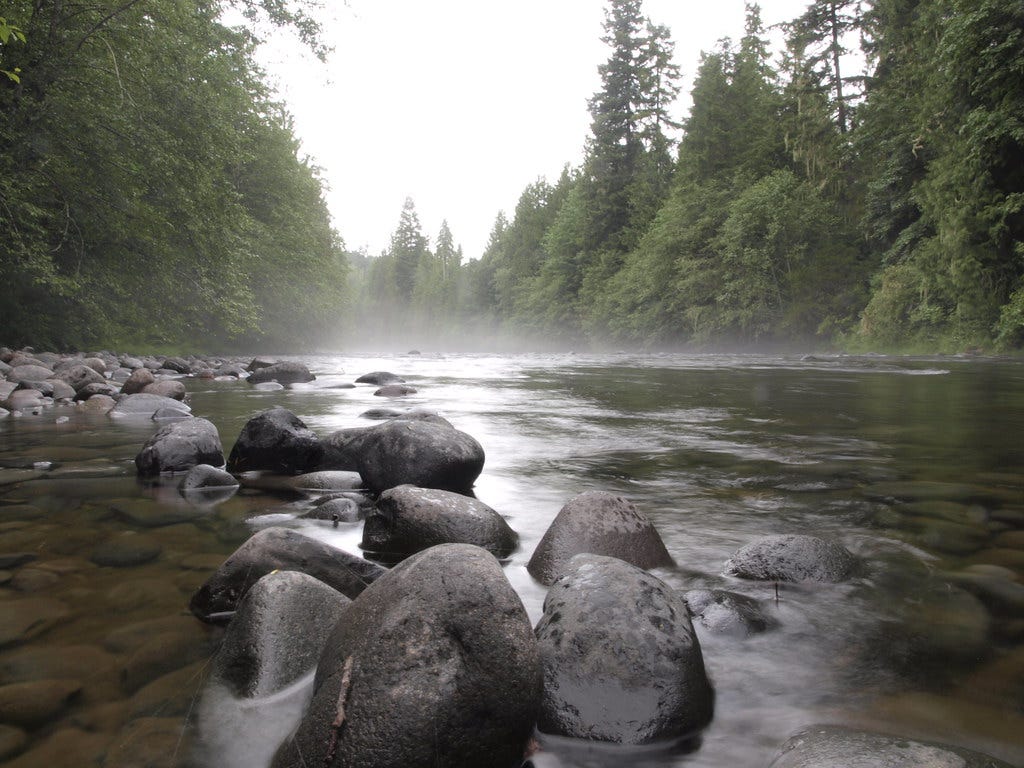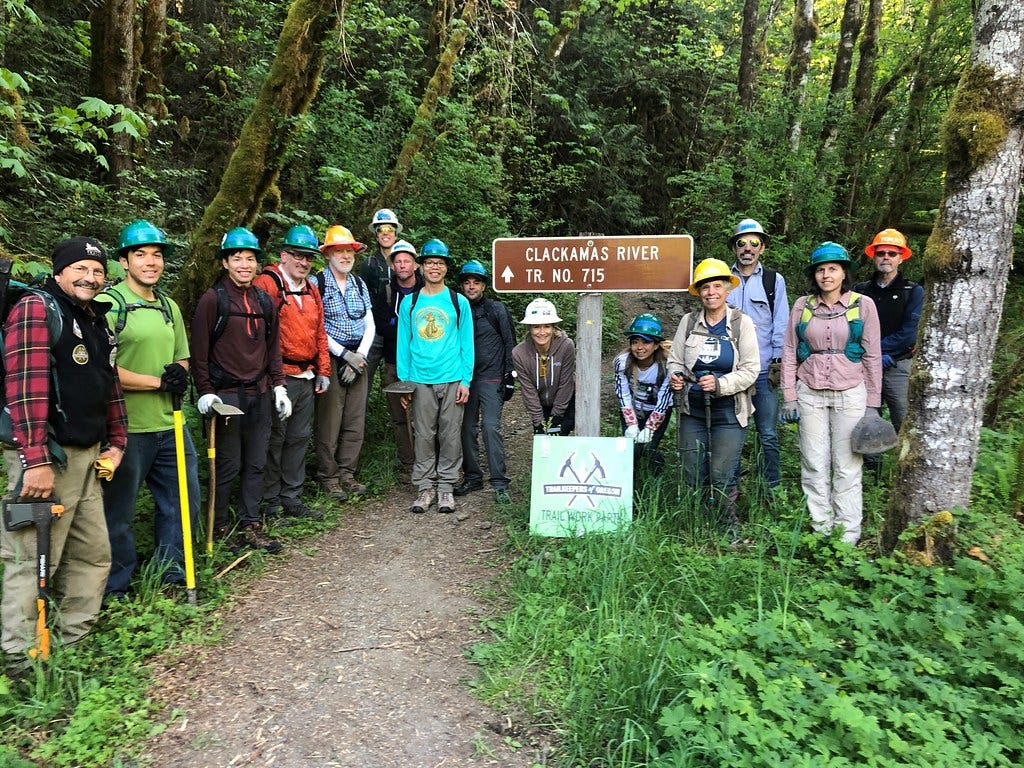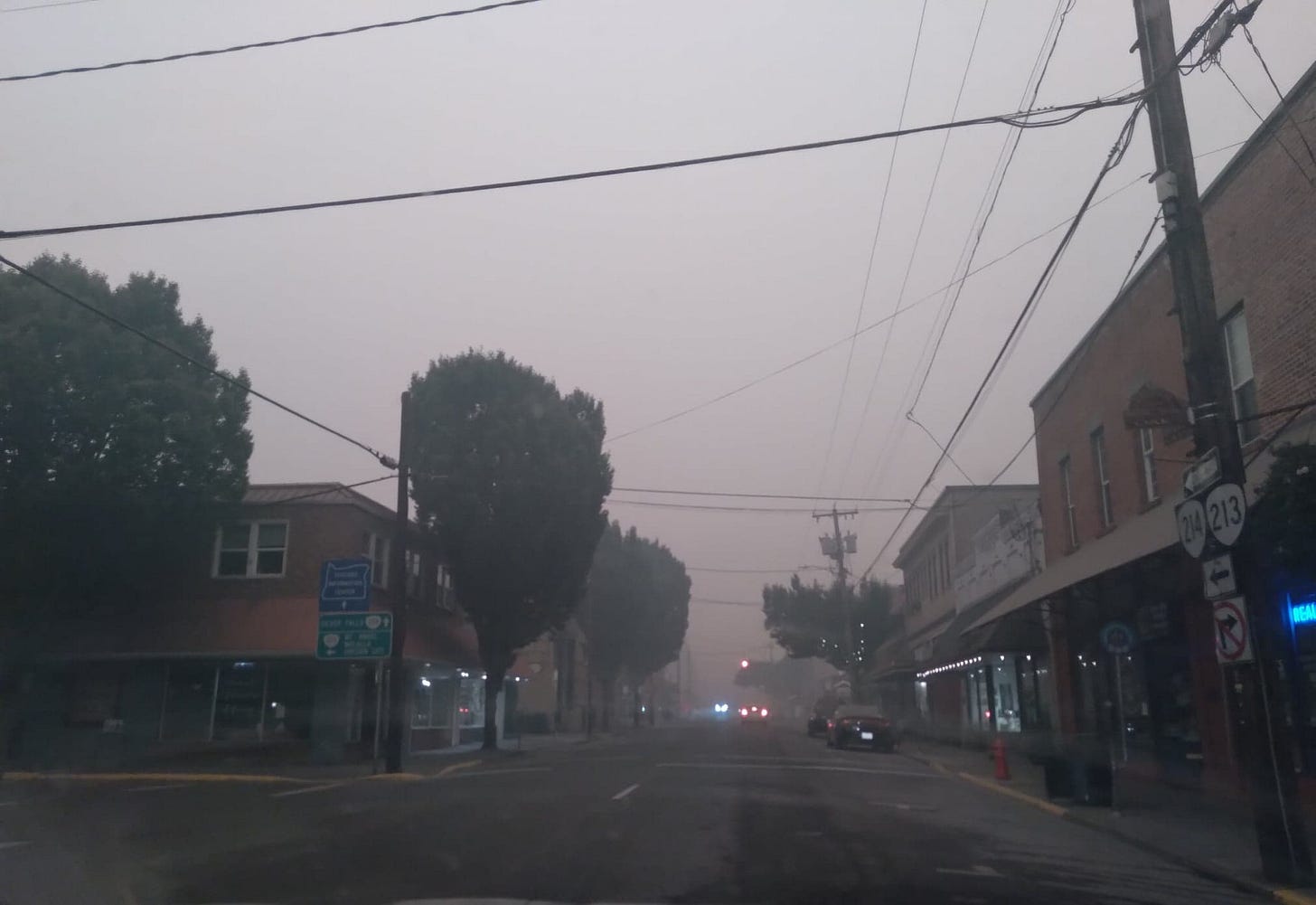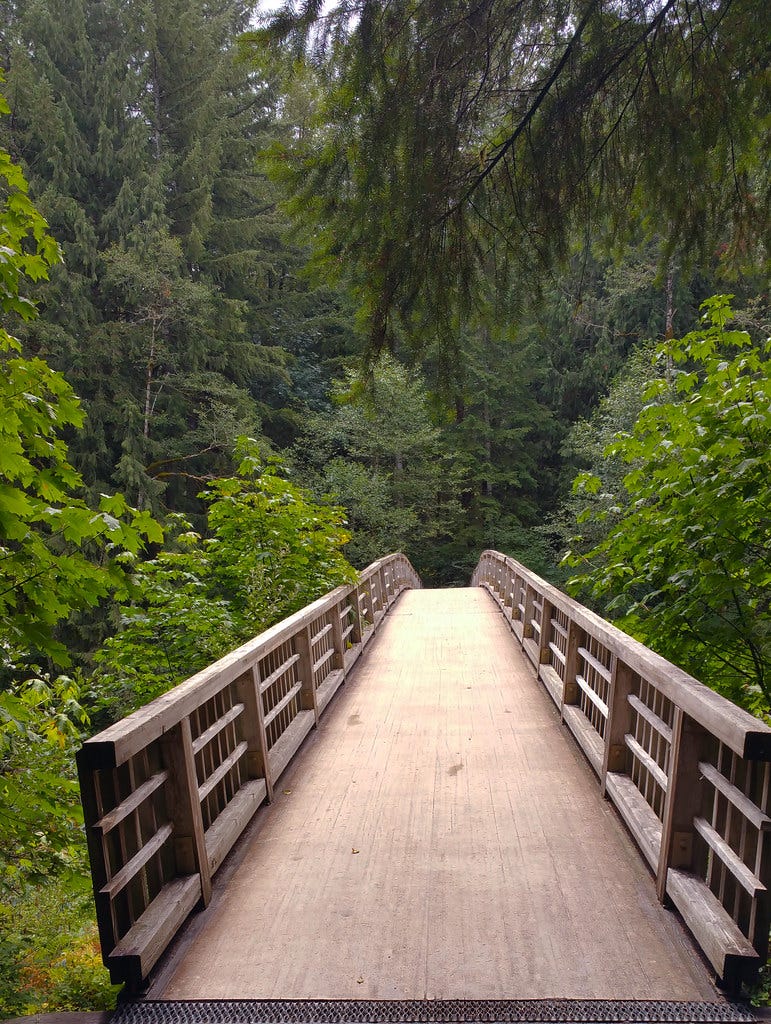Sarah White: Don't forget this moment.
We will be tempted to turn on each other just days after we turned to each other. But this time, we will be different.
Sarah White is a community activist, non-profit director, and advocate for the unhoused, pursuing radical kinship with those at the margins. She lives in Silverton with her family and two dogs.
When our “common church” was threatened, we came together

"Molalla River Recreation Area" by BLM Oregon & Washington is licensed under CC BY 2.0
Across the canyons and forests of the western slopes of the Cascade Mountains, lingering fires burn underground and in the protective trunks of both old growth and engineered forests. Historic wildfires across the state are still smoldering as crews pursue containment. More rain is coming, but even the last heavy storm wasn’t enough to completely put out these massive blazes. They have decimated our beloved spaces—the spaces my family runs to when the work of life wears us down and we need to return to something quieter. These are our hallowed and holy places—the closest thing we Oregonians have to a common church.
Bound by a shared belief in the sacredness of these spaces, Oregonians came together. To see an example, look to Silverton. Extraordinary conditions—including a once in a lifetime wind event, drought, and an existing blaze—converged to create the Beachie Creek Fire, which threatened my beloved town of Silverton and many of the surrounding communities. Sadly, lives and homes were lost, and the fire destroyed entire small communities.
What remains after the fires are buttressed forest halls and a new sense of empowerment among rural Oregonians. In Scotts Mills, the Silverton Hills, Molalla, Estacada, and all the way up the Santiam Canyon, rural Oregonians brought their shovels, backhoes, water tankers, stock trailers, casseroles, their gathered treasures, and their uncommon grit to a conflagration beyond our imaginations. We saw what we are made of: courage, pragmatic stewardship, and devotion to our home and her inhabitants—what Theodore Roosevelt challenged us to carry into our daily lives:
We must show, not merely in great crises, but in the everyday affairs of life, the qualities of practical intelligence, of courage, of hardihood, and endurance, and above all the power of devotion to a lofty ideal, which made great the men who founded this Republic in the days of Washington, which made great the men who preserved this Republic in the days of Abraham Lincoln.
We’re stronger and more united than we think

"201905_Trailkeepers of Oregon volunteers at Clackamas River Trail, photo by Renee Janssen." by Forest Service Pacific Northwest Region is marked with CC PDM 1.0
Oregon, we have seen what you are made of. We have seen what we are made of. There is no going back from this.
When the next political, economic, or public health challenge centers itself in our common discourse, we must not forget that when incineration and blood-red skies threatened our way of life, we dropped our various assumed and imposed identities and rushed together toward danger. We must not forget our interdependence. We must remember that “Redneck Brigades” with water tankers provided ground support while state and federal planes and Hotshots provided air support. We must not forget that neighbors opened their pastures, their homes, and their wallets to ensure that every living creature in Oregon had a safe place to lay their head, as far as possible from fire and smoke.
The next several months will test the togetherness of this moment. There will be fights in Salem and on our small-town Facebook pages over policing, racism, homelessness, and carbon emissions. There will be policies proposed that lack regard for the day-to-day challenges and duties facing many Oregonians, and there will be dynamic figures who leverage the culture wars for their own status. There will be fights in Washington and in Portland. All of this is the “back to normal” we’ve been steered toward. But we need to buck this trend. We need to realize we want so much more for ourselves and our communities. We had a glimpse of what we could be during this most recent existential crisis.
Certainly there were cracks in this unity. We heard rumors of Antifa arsonists and government withholding that proved to be untrue—reminders that we live in a contentious, suspicious time. The beaming small town pride we hear in the wake of this natural disaster could quickly turn to xenophobia and disdain if exploited or derided.
The questions we must answer
How can we prevent ourselves from shying away from the hard conversations needed to overcome the political entrenchment, civil unrest, and economic inequality that dominate our headlines and drive our despair?
How, when we managed to rescue and shelter thousands of our neighbors and their livestock overnight, can we avoid talking ourselves out of our collective ability and responsibility to shelter and care for our most vulnerable citizens who were displaced by social failure rather than fire?
How, when we have seen teenagers and senior citizens hop out of their big trucks to wield pulaskis and shovels to fight back an inferno for days without rest, can we challenge the belief there is no common ground in “the culture wars?”
How can we not see that we have everything we need to overcome the challenges faced in our local communities and our state?
The wrong answers

Photo via Sarah White.
We will be tempted to return to bickering, dehumanizing, and mistrusting. We may be led there by outside forces or by our own fear about the future. We may be manipulated through social media and bad actors with their own agendas to forget what we know about each other and what we’ve seen in our communities these past weeks.
The right answers

"Wildwood Recreation Site" by BLM Oregon & Washington is licensed under CC BY 2.0
We must be brave enough to oppose the vilification of every public servant we don’t agree with and every neighbor who flies the wrong flag. We must remember that if the skies burned red again and smoke choked out our streets, we would without question open up our homes and offer what worn out tools we have—a place to rest, shelter for the night, and a warm meal. We will be tempted to turn on each other just days after we turned to each other. But this time, we will be different.
*********
Keep the conversation going on our Facebook page: https://www.facebook.com/oregonway



